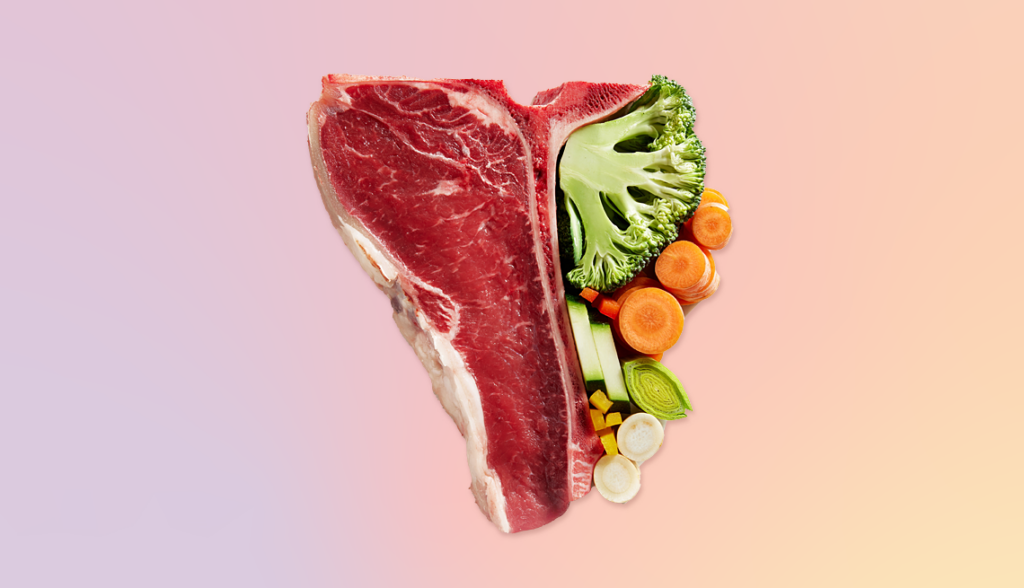
When Andrea Krenek was growing up in Texas, her meals frequently centered around thick cuts of steak, hearty barbecues and sandwiches. But as Krenek learned more about nutrition and crystallized her own values, her diet evolved. Now a registered dietitian, chef and postdoctoral scholar at Stanford University School of Medicine, Krenek avoids meat entirely.“
There are so many alternatives to meat that may not be identical, but really are wildly close, if not preferable,” Krenek says.
While not everyone needs to, wants to or can make the same choice, research continues to stack up in favor of eating plants over animals. Most recently, a massive study in The Lancet Diabetes & Endocrinology found that both processed and unprocessed red meat significantly up the risk of developing type 2 diabetes.
It’s all more evidence that “for many populations, focusing on plant-based foods and limiting meat can come with several benefits, from reducing chronic disease risks to supporting environmental health and athletic performance,” Krenek says. “Whatever the motivators and rationale,” she adds, “any small or large shift towards more whole plants is wonderful.”
Here’s what else to know about the pros of cutting back on meat — and how to revamp your diet without feeling deprived.
1. Reduces the risk of type 2 diabetes
In the Lancet study, published in September 2024, researchers looked at the self-reported eating patterns of nearly 2 million adults in 20 countries. They then tracked how many of the participants had developed type 2 diabetes a median of 10 years later. About 5.5 percent of them had — and their meat intake seemed to matter.
Specifically, the study found that just 1.8 ounces of processed meat a day (or a few slices of bacon) was linked to a 15 percent increase in type 2 diabetes risk, and 3.5 ounces of unprocessed red meat a day (akin to a small steak) was linked to a 10 percent increased risk — even when accounting for other factors like body size, physical activity and family history. In some cases, poultry was also associated with a higher likelihood of developing type 2 diabetes, but more research is needed in that department, the researchers said.
The results are no surprise to Vandana Sheth, a registered dietitian and certified diabetes care and education specialist in Los Angeles. “Basically, it comes down to insulin resistance,” she says. In general, saturated fats — found in processed and red meats — can lead to insulin resistance, which affects your blood sugar and contributes to type 2 diabetes.“
So adding more plant-based foods might be a good option, not just [because of] this study, but we know more plant-based proteins can be helpful in terms of overall health,” says Sheth, who is also the author of My Indian Table: Quick & Tasty Vegetarian Recipes.
To find out the other health benefits of not eating meat, from AARP, CLICK HERE.

